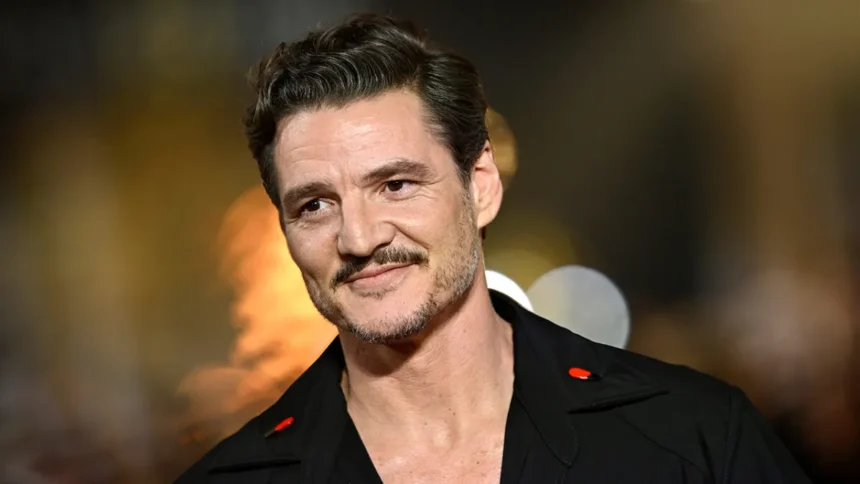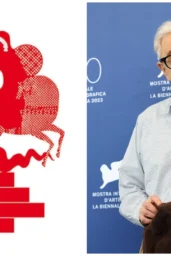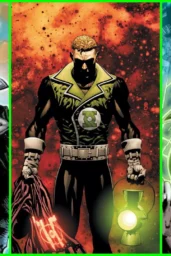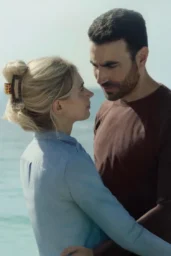The story didn't end when Joaquin Phoenix walked five days before cameras rolled. It just paused. Todd Haynes' 1930s-set gay romance “De Noche” is reportedly alive again, with Pedro Pascal circling the lead and Danny Ramirez still aboard. If that sounds like a neat bit of studio CPR, it is — and a reminder that films with a pulse (and a marquee auteur) rarely stay dead for long.
Haynes has always been cinema's patient stylist — precise, cool to the touch, then suddenly devastating. Carol looked like porcelain but cut like glass. Far From Heaven wore Sirk, then bled its own color. A 1930s queer romance under his eye? You can practically see the smoke, the lacquered blacks, the powdered light pooling on a hotel bedspread. That's the selling point — not the headlines, not the gossip, not even Pascal's omnipresence. The frame is the thing.
The production's been through a meat grinder. Phoenix's exit — five days out — reportedly tied to an explicit sex scene with Ramirez, the kind of boundary-pushing intimacy that can tilt a film's rating to the “likely NC-17” zone and tilt an actor's calculus just as fast. Producer Christine Vachon said months ago that the film was shelved; trades echoed it; the industry shrugged, moved on. Now the plan, per reports, is to shoot in January 2026, with Pascal circling the role Phoenix vacated and Ramirez still locked as co-lead. That's the only real calendar date in play. No premiere circled, no fest staked. Just a month, a year, and a director who doesn't waste a second once the lights are hot.
Let's talk casting — and fatigue. Pascal is everywhere, all at once: HBO's The Last of Us (that viral season 2 moment), Celine Song's Materialists, Ari Aster's Eddington, Marvel's Fantastic Four: First Steps. Five films last year, and he's still sprinting. At a point, the omnipresence flattens the surprise; the face shows up before the character does. But Haynes isn't a franchise foreman. He's a refiner. Actors come to him to carve away tics and find the marrow. If Pascal takes this, it's not because the calendar had white space. It's because the part asks for fearlessness — and because Haynes, across decades, coaxes the kind of composed, adult desire that almost no one else in American cinema bothers to shoot anymore.
The other side of this is logistics. An NC-17 ceiling isn't just a rating — it's a distribution problem, a marketing headache, a theater-chain maybe. We've seen how streamers become safe harbors for boundary-testing work, but Haynes' films thrive on the big-screen hush, the distance between you and a character who won't say what they want until they have to. The question is where “De Noche” lands and how hard it leans into that “likely NC-17” reputation. Leave nothing to imagination? Or leave just enough for the audience to lean in? There's a difference between provocation and tone. Haynes knows it. The marketplace doesn't always care.
Ramirez staying in is the quiet headline. You need chemistry to sell forbidden love, not just two names that play well on a poster. Ramirez has the stillness — watch him hold back, then flash a tell — that paired with Pascal's open-wire empathy could edge this into dangerous, living territory. That's what you want: not a cause, not a controversy, but a temperature. The 1930s setting adds rule and ritual — eyes cast down on sidewalks, coded meetings in back rooms, everything pressed and concealed. If Haynes turns the screws right, the explicitness is less about shock than release. Earned heat, not borrowed scandal.
There's a practical angle to this resurrection, too. Shelving a near-start feature is a financial sinkhole; reviving it with a bankable lead is basic triage. The lesson: auteurs with a known visual language and a committed producer like Vachon get second chances others don't. It's not sentiment — it's a bet that the auteur cut still commands attention in a landscape starving for adult dramas. We've been here before with projects that hovered on the brink, then found air. The surprise isn't that “De Noche” is back. It's that anyone believed it would stay gone.
If Pascal signs, expect a war of expectations. On one side, the actor-of-the-moment discourse — the “enough already” chorus that inevitably trails ubiquity. On the other, a director who can mute stardom into character. Haynes reconfigures faces. He crushes the celebrity patina, then lets a small gesture — a glance off a window, a hand too long on a sleeve — carry the whole damn scene. That's why this pairing, even amid fatigue, reads as more than a headline. It could sharpen Pascal, not just spend him.
And yes, the backstory lingers. Phoenix's exit. Money lost. A project folded, then unfolded. That residue doesn't vanish. It reframes the film as an act of persistence — and, maybe, an argument for grown-up filmmaking in an era allergic to risk. You can call it scandal. I call it proof the machine still makes room for films with difficult edges and no four-quadrant smile.
What to Know About “De Noche” Before It Rolls
- Bold replacement, same risk: Pascal circling the lead brings heat and stability to a project that lost Joaquin Phoenix days before filming — without sanding down the film's likely NC-17 edges.
- Haynes' precision is the draw: Expect porcelain visuals with a blade underneath — 1930s repression, coded desire, and the kind of adult intimacy almost no one shoots anymore.
- Ramirez's presence matters: Keeping Danny Ramirez anchors continuity and suggests chemistry was a core reason to revive, not just replace.
- January 2026 is the only date: No release or festival targets yet — just a production window that signals the money (and will) are back in place.
- Expect the discourse, not just the film: Pascal's ubiquity will spark fatigue takes, but Haynes has a track record of turning stars into characters, not content.
Tell me what you're hoping Haynes leans into here — porcelain restraint or full-blooded heat? And if Pascal signs, does that change your interest level, or is the director the real ticket?









